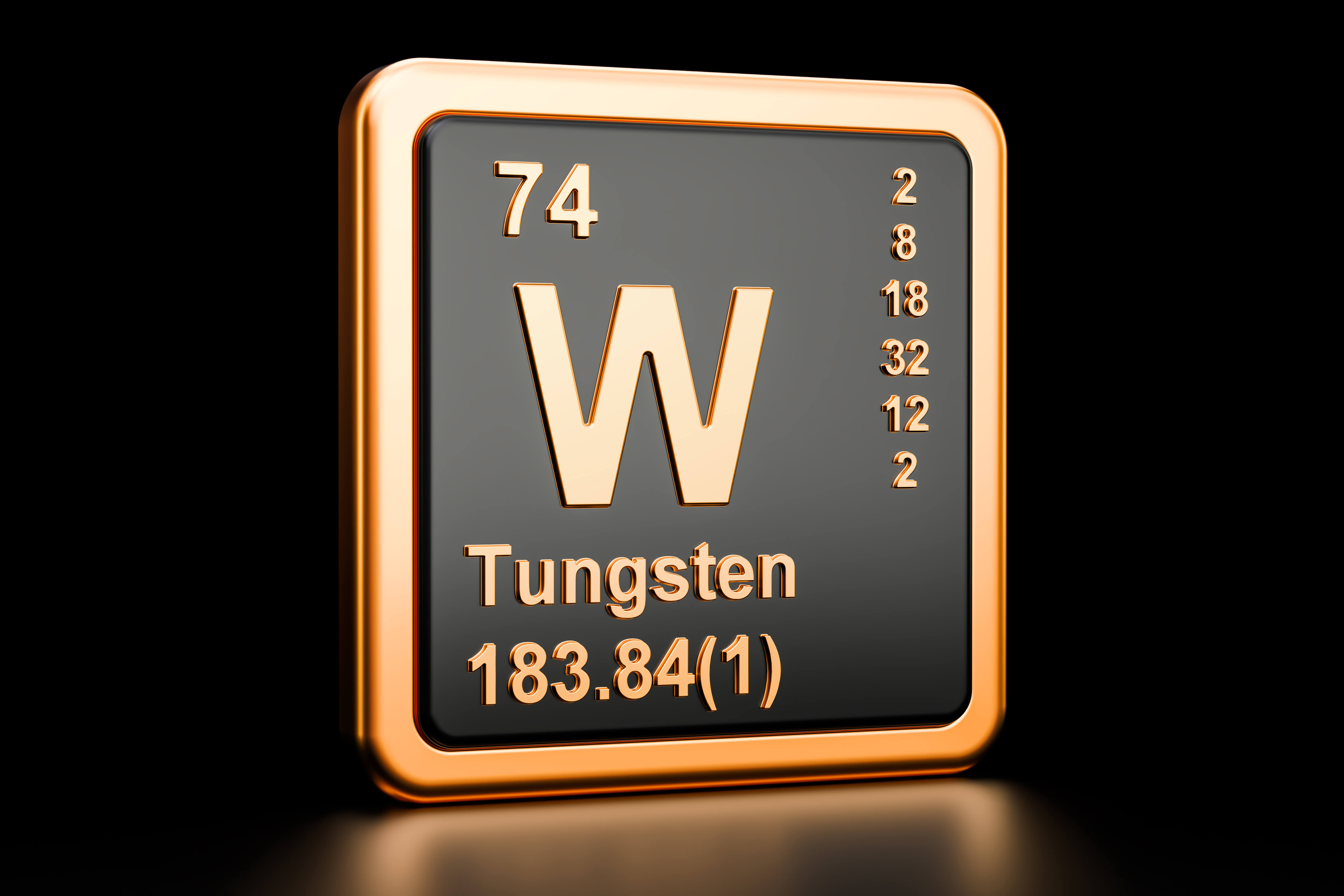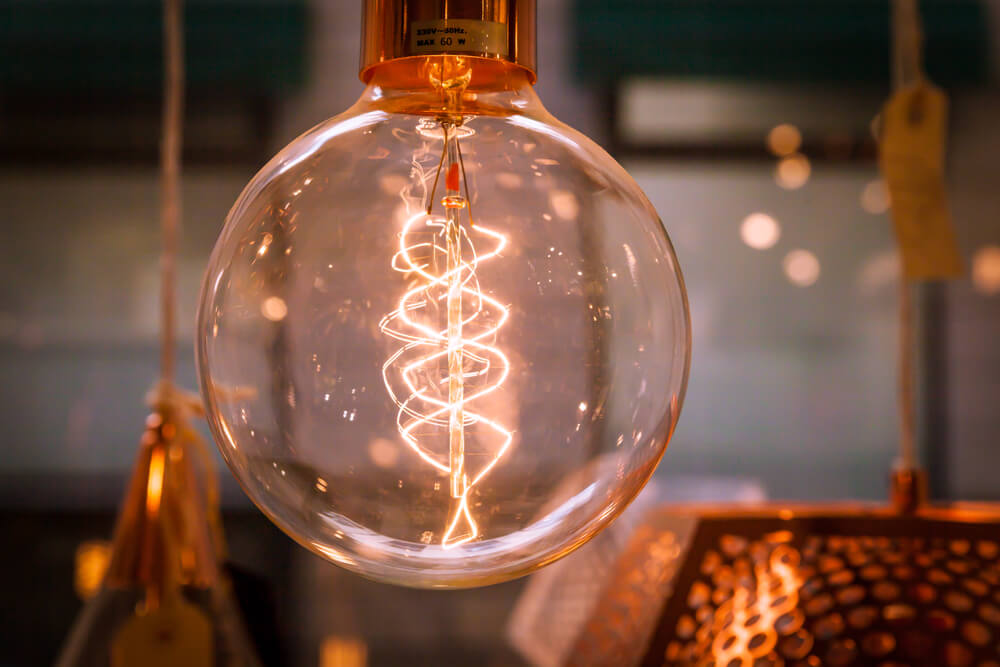
Six Advantages of Using Tungsten Metal
As a leading supplier and manufacturer of machined products – here at Special Metals – we stock several unique refractory metals. One such metal that we stock is tungsten. Perhaps the most durable in our repertoire, tungsten metal is used across hundreds of industries in a huge variety of applications – from alloys and aeronautics to electronics and the production of super-hard materials.
But why is tungsten so important?
Here we outline six advantages of tungsten metal, which help to explain why it is used so widely.
1. Resistance to high temperatures
Of all metals in their purest form, tungsten has the highest melting point (3422°C). This can be hugely beneficial in certain situations (particularly when compared to other more common metals). For example, it makes tungsten an excellent material for high-temperature environments – and this is why it is so widely used in the aerospace, automatic and construction industries.
Tungsten metal is also regularly used to create alloys and superalloys. Its extremely high melting point and resistance to thermal creep help to strengthen the alloy, making it suitable for more thermally intensive applications, where other metals would fail.
2. High-density
Tungsten benefits from a very high density. In fact, at 19.3 g/cm3, it is amongst the highest of all metals, with tungsten’s density measuring approximately 19.3 times higher than that of water and 1.7 times higher than that of lead.
As a result of this property, tungsten can hold much more weight in a smaller package – and is commonly used for applications were mass is required in small sizes. For example, due to the high density of tungsten, it is a fantastic option for making racing car ballast, aircraft ballast and kinetic munitions – which must be small and streamlined, yet capable of transferring lots of energy.
It’s also used as an effective, alternative metal for jewellery-making. Tungsten’s density is extremely similar to that of gold (i.e. tungsten being just 0.35% less dense) – yet it’s much cheaper to buy. Therefore, since the 1980s, it has frequently been used to make counterfeit gold bars, either by plating a tungsten bar with gold or drilling holes in a genuine gold bar and adding tungsten rods.
Lastly, thanks to its high-density, tungsten is regularly employed to create heavy metal alloys. One particularly good example is high-speed steel, which can contain as much as 18% tungsten. However, tungsten’s density can also prove useful when combined with nickel, copper, iron and more.
3. Low thermal expansion
Tungsten has the lowest coefficient of thermal expansion of all pure metals. Compared to common manufacturing materials (e.g. steel), this gives it the benefit of added stability under extreme heat. It has a structural solidity unmatched by other metals and is especially useful when rigidity at high temperatures is required – such as in tungsten carbide cutting tools or jet engine turbine blades.
4. Electronic structure
Due to its conductive properties and relative inertness, tungsten metal is widely used in the electronics industry and environments involving high levels of radiation. For this reason, along with its very high density, tungsten is one of the main sources of metal for X-ray targets and other high-energy radiation shielding – as the relatively inert, very high-density material is difficult for x-rays to penetrate. Tungsten metal also frequently finds use in electrodes, conductors and metallic films.
5. Corrosion-resistance
Tungsten is highly resistant to corrosion and can be used in a range of corrosive environments and outdoor applications. For example, it is particularly useful when prolonged exposure to corrosive substances – such as water, acid, or solvents – is likely.
A commonly-encountered corrosive environment, which many metals are unable to deal with, is a marine environment. Salt water, in particular, is extremely corrosive to many metals. However, when alloyed with other metals, the resistance of tungsten metal makes it extremely suited to such a harsh environment, enabling it to be used in shipbuilding, fishing lures and jewellery.
6. Strength in fabrication
Tungsten is an extremely robust metal, with the highest tensile strength of all pure metals. While this can make it brittle under certain circumstances, when it comes to the process of metal fabrication, tungsten’s rigidity means that it can be drawn into very thin wires without fracturing.
Perhaps the most obvious example of this is tungsten’s use in the context of light bulb filaments. In this particular application, extremely thin wires must be heated to extremely high temperatures, in order to emit light – and tungsten’s high melting point is a crucial factor in allowing this to happen.
Tungsten Metal FAQ’s

Our team have excellent knowledge of tungsten metal and its use in the metal fabrication process. Here they answer some of your most frequently asked questions:
What is tungsten metal?
Tungsten metal is a chemical element with a wide range of day-to-day uses. Often referred to by its Latin name – Wolfram – it has a chemical symbol of W and an atomic number of 74. Tungsten is a member of the transition metals on the periodic table. It sits in the same column as chromium and molybdenum and, as a result – in its pure metallic state – it boasts a vast range of useful properties.
When was tungsten discovered?
The first mention of tungsten can be traced back as far as 1750. Tin miners in Germany discovered a mineral (wolframite) that accompanied tin ore and reduced tin yields when smelting. Around the same time, scheelite – the other important tungsten ore – was discovered in an iron mine in Sweden. This is how tungsten got its name, derived from the Swedish words for ‘heavy stone’.
Tungsten was eventually isolated as a metal in 1781. Spanish brothers, Fausto and Juan Jose d’Elhuyar, synthesised tungsten metal from wolframite and scheelite – showing that both of these were in fact minerals from the same new element.
Where can tungsten be found?
Tungsten is found in the Earth’s crust in compounds and must be purified before use. It is believed to be formed during a supernova and, as supernova explosions happen rarely, it is a relatively rare metal element. In fact, for every 1000 kilograms of the Earth’s crust, there are just 1.25 grams of tungsten.
What are the main properties of tungsten metal?
Solid at room temperature, tungsten metal has a light grey-white appearance. It is super dense, with an atomic weight of 183.84, and is almost impossible to melt – boasting the highest melting point of all refractory metals. It demonstrates excellent tensile strength and resistance to corrosion. Yet, is also very malleable. Tungsten lends itself well to metal fabrication and can be used to create many metal products.
What is tungsten metal used for?
Tungsten has a huge range of uses across hundreds of different industries – including cutting-edge applications, which make the most of its exceptional and chemical properties.
Some of these applications take advantage of its extremely high melting point and excellent electrical conductivity. For example, tungsten is used to create light bulb filaments, crucibles, and jet engine components – which must maintain structural integrity at high temperatures. Tungsten metal is also often used for its high density. It provides huge levels of mass at a comparatively low volume and, as such, is an ideal option for ballast, aircraft, spacecraft, racing cars and even munitions.
When alloyed with other metals, tungsten’s strength, melting point, and resistance to thermal deformation and corrosion can be incorporated into the alloy. This allows the creation of a number of particularly high-performance alloys – which embody tungsten’s useful properties and are commonly seen in high-end vehicle construction, tool manufacturing, and structural reinforcement.
About half of the world’s tungsten is consumed in the production of hard materials, such as tungsten carbide – one of the hardest materials known. This exceptionally hard tungsten compound is invaluable in the construction of cutting, drilling, filing and boring machines – creating components that take considerably longer to wear down, work much more effectively, and greatly boost the cost-effectiveness of the tools and machinery which employ them.

Why is Tungsten important?
Tungsten is one of the most remarkable metals. It has the highest melting point of any element yet to be discovered – as well as an extremely high-density and resistance to both corrosion and thermal deformations. It can also be easily combined with other metals to form alloys and carbides.
Thanks to these exceptional properties, tungsten metal has found uses in almost every industry, from jewellery and sports to surgical instruments, aerospace engineering, high-speed tools, nuclear shielding, alloys and compounds, chemical applications and electronics.
Tungsten is also now involved in research into nanowires, making it a particularly promising material for the future development of materials, science and technology.
How strong is tungsten metal?
Tungsten metal has a tensile strength of 1510 megapascals (MPa). Putting this into perspective, it is much stronger than cast iron (with a strength of 200MPa), structural steel (550MPa) and even stainless steel (860MPa). Tungsten is now known as the strongest naturally occurring metal on Earth – and this property, in particular, makes it a desirable metal for a wide range of applications.
Where can I buy tungsten metal?
Special Metals is a leading manufacturer and supplier of machined products – including products created from tungsten metal. We currently stock a wide range of tungsten metal parts, including:
Standard sizes are available or they can be made bespoke to order, to meet your exact specification. Our team have excellent knowledge of this refractory metal. They can offer tailored advice on the best tungsten metal parts for you and will ensure you receive the highest quality tungsten products.
Contact Special Metals UK for Tungsten Today!
If you would like to find out more about tungsten, or how it could be applied to your industry, please feel free to get in touch. The team at Special Metals have excellent knowledge of tungsten metal and will happily answer your questions, offer tailored guidance and provide a quote.
Simply give us a call today on 01268 820409 to discuss your requirements. Alternatively, send an email to sales@special-metals.co.uk and we will respond to your enquiry as soon as possible.

Leave a response
Your email address will not be published. Please enter your name, email and a comment.
2 responses to this post
Pingback: What is Tungsten Used For? | Special Metals
Pingback: Tungsten carbide rings -